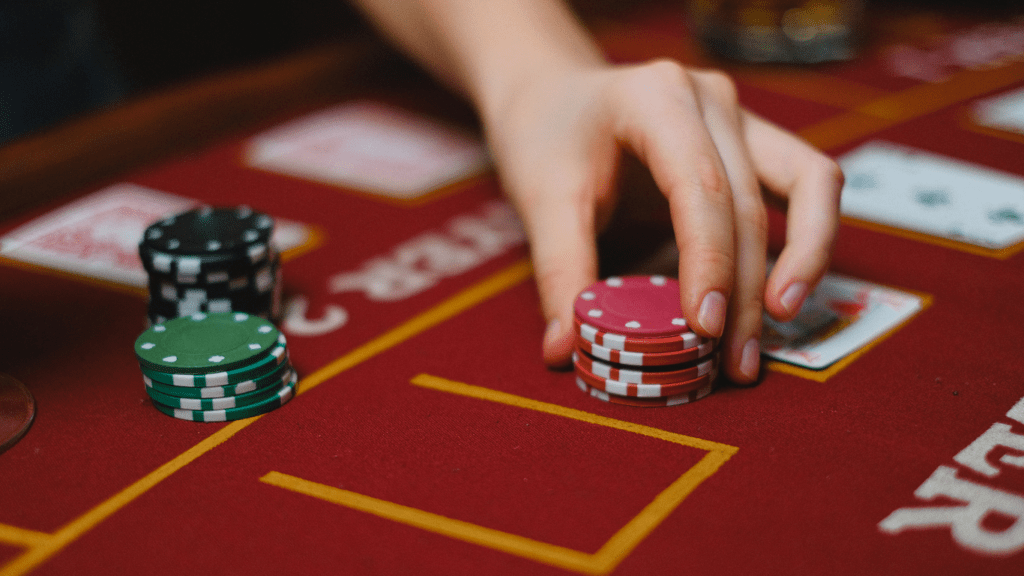Feeling stressed or exhausted can significantly influence the choices we make, especially when it comes to gambling decisions. As someone who has delved into the intricate connection between our mental state and decision-making processes, I’ve witnessed firsthand how stress and fatigue can cloud our judgment and lead to risky behaviors.
In this article, we’ll explore the profound impact that stress and fatigue have on the way we approach gambling, shedding light on the underlying mechanisms that drive our actions in these moments of vulnerability. Stay tuned as we uncover the crucial link between our emotional well-being and the risks we take in the realm of gambling.
Understanding the Relationship Between Stress, Fatigue, and Gambling Decisions
Exploring the intricate interplay between stress, fatigue, and gambling decisions is crucial in comprehending how these factors influence one’s choices. Stress and fatigue can significantly impact decision-making processes, often leading individuals to make risky bets or engage in impulsive behaviors.
By delving into the connection between these mental states and gambling outcomes, we can uncover the underlying mechanisms that contribute to increased gambling risks. It’s essential to recognize the profound effect that stress and fatigue can have on our emotional well-being, shaping the way we approach and engage in gambling activities.
Psychological Effects of Stress and Fatigue on Decision-Making
Stress and fatigue can significantly impact decision-making processes, particularly in the context of gambling. These psychological factors play a crucial role in shaping our choices and behaviors in the realm of betting activities.
Impulse Control and Risk-Taking Behavior
In high-stress or fatigued states, individuals often struggle to maintain impulse control, leading to impulsive and risky decision-making. This can manifest as sudden, unplanned bets or wagering larger amounts than intended, driven by a lack of inhibition and a desire for quick rewards.
Cognitive Biases in Decision-Making Under Stress
Under stress or fatigue, cognitive biases can distort judgment, affecting how individuals perceive risks and rewards in gambling scenarios. Biases such as overconfidence, recency bias, and framing effects can influence decision-making, potentially leading to suboptimal choices and increased susceptibility to gambling risks.
Physiological Impact of Stress and Fatigue on Gambling Choices
Exploring the physiological implications of stress and fatigue on gambling decisions reveals fascinating insights into how our bodies react under these conditions. When faced with stress, the body releases cortisol, a hormone that can cloud judgment and amplify emotional responses.
In the realm of gambling, heightened cortisol levels can fuel impulsive decision-making and skew risk evaluation. Fatigue, on the other hand, not only impairs cognitive functions but also diminishes self-control. In a fatigued state, the brain struggles to regulate impulses effectively, potentially leading to reckless gambling choices.
The depletion of energy reserves contributes to a decrease in overall cognitive abilities, making it challenging to assess risks accurately. Understanding the physiological interplay between stress, fatigue, and gambling behaviors underscores the intricate relationship between our mental and physical states.
These factors can disrupt the delicate balance necessary for prudent decision-making in gambling contexts, emphasizing the critical need to manage stress and fatigue levels to mitigate impulsive actions in wagering activities.
Strategies for Mitigating Stress and Fatigue in Gambling Environments
Exploring effective strategies to mitigate stress and fatigue in gambling environments is crucial for maintaining sound decision-making processes and avoiding impulsive behaviors.
- Establishing Routine Breaks: Incorporating regular breaks into the gambling session can help prevent mental fatigue and maintain focus. Taking short pauses to relax and recharge can improve decision-making abilities and reduce the impact of stress on gambling choices.
- Setting Limits: Establishing predetermined limits on both time and money spent gambling is essential in managing stress and fatigue. By setting boundaries, individuals can prevent impulsive decision-making fueled by emotions and exhaustion.
- Practicing Mindfulness: Engaging in mindfulness techniques, such as deep breathing exercises or meditation, can promote mental clarity and emotional regulation in high-stress situations. By staying present and aware of their thoughts and emotions, individuals can make more rational gambling decisions.
- Seeking Social Support: Surrounding oneself with a supportive social network can provide emotional assistance and perspective during stressful gambling moments. Sharing concerns and seeking advice from trusted individuals can help alleviate stress and prevent impulsive actions.
- Prioritizing Self-Care: Maintaining a healthy lifestyle through adequate sleep, nutrition, and physical activity is crucial for managing stress and fatigue. Taking care of one’s physical well-being can enhance mental resilience and decision-making skills in gambling environments.
By implementing these strategies, individuals can effectively mitigate the impact of stress and fatigue on their gambling decisions, promoting responsible and informed choices in wagering activities.



 Eriker Welschesters
Cryptocurrency Gambling Advisor & Blockchain Expert
Eriker Welschesters is Pro Gamble Genius's resident cryptocurrency gambling expert, offering a forward-thinking perspective on the integration of blockchain technology with online gambling. Eriker has spent years studying the intersections of finance, technology, and gambling, and his insights have made him a leading authority in the world of cryptocurrency betting. His work focuses on educating readers about the benefits, risks, and practical applications of digital currency in online casinos, including topics like secure transaction methods, anonymity, and the role of blockchain in fair gaming practices. Eriker’s articles help both crypto-savvy readers and newcomers to safely navigate the fast-growing world of cryptocurrency gambling. Dedicated to ensuring that Pro Gamble Genius remains at the forefront of this trend, Eriker continuously explores new developments in blockchain and crypto to keep readers informed and prepared to make the most of their gambling experiences in a digital age.
Eriker Welschesters
Cryptocurrency Gambling Advisor & Blockchain Expert
Eriker Welschesters is Pro Gamble Genius's resident cryptocurrency gambling expert, offering a forward-thinking perspective on the integration of blockchain technology with online gambling. Eriker has spent years studying the intersections of finance, technology, and gambling, and his insights have made him a leading authority in the world of cryptocurrency betting. His work focuses on educating readers about the benefits, risks, and practical applications of digital currency in online casinos, including topics like secure transaction methods, anonymity, and the role of blockchain in fair gaming practices. Eriker’s articles help both crypto-savvy readers and newcomers to safely navigate the fast-growing world of cryptocurrency gambling. Dedicated to ensuring that Pro Gamble Genius remains at the forefront of this trend, Eriker continuously explores new developments in blockchain and crypto to keep readers informed and prepared to make the most of their gambling experiences in a digital age.
